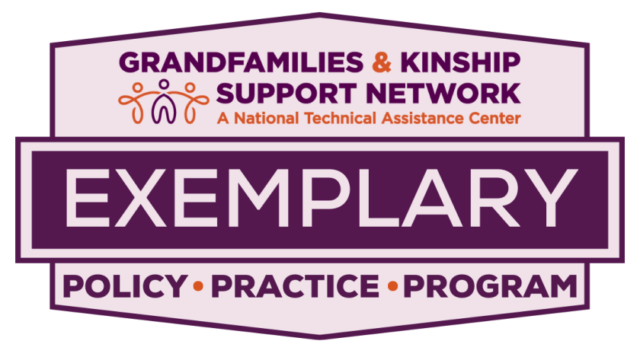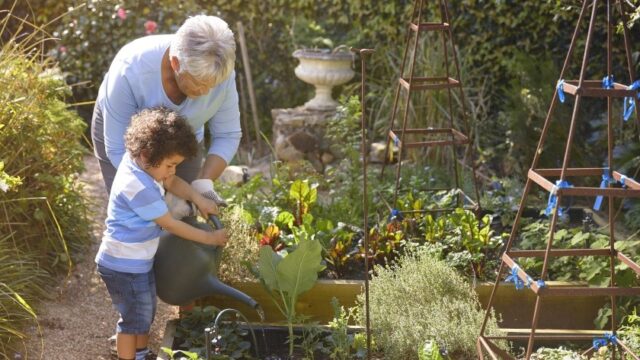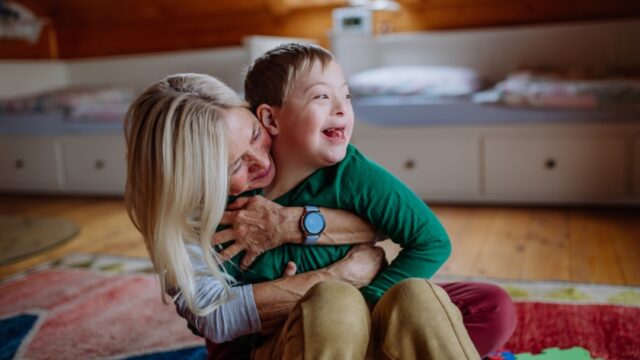Exemplary Programs
Grandparent & Close Relative Caregiver Subsidy Programs – District of Columbia
Download This Resource
For almost 20 years, the District of Columbia, through its Child and Family Services Agency (CFSA), has been financially supporting grandparents who are raising their grandchildren without child welfare involvement. In 2019, DC began a parallel program to also provide monthly subsidies to other relative caregivers. Ongoing financial support is one of the most critical needs of caregivers who did not plan or expect to raise children whose parents cannot raise them. The District of Columbia remains one of the only jurisdictions in the United States that funds and provides its own monthly financial assistance to low-income relative caregivers of children. Caregivers can receive these monthly subsidies, averaging over $600 per child per month, in addition to other federal supports, such as Temporary Assistance for Needy Families (TANF). The Grandfamilies & Kinship Support Network is pleased to designate the District of Columbia’s Grandparent and Close Relative Caregiver Subsidy Programs as exemplary.
Eligibility and Application Process
Eligibility for the Grandparent Caregiver Program is open to grandparents, great-grandparents, great-aunts, and great-uncles, while the Close Relative Caregiver Program is for brothers, sisters, aunts, uncles, nieces, nephews, and cousins. For both programs, caregivers and the children they raise must reside in the District of Columbia and household income must be at or below 200 percent of the federal poverty level. The full eligibility requirements can be found here. There are several notable aspects among these requirements:
- Caregivers can receive both TANF and DC subsidies. Applicants must apply for TANF first and receive a determination. Whether the caregiver is approved or denied for TANF, they may also apply for one of the subsidy programs. If approved for TANF and the TANF amount does not put them over the DC subsidy income limits, they may receive both supports or an offset amount of the subsidy payment. The vast majority of DC subsidy recipients receive both TANF and the subsidy.
- Caregivers are not required to have legal, court-ordered relationships with the children; both subsidy programs provide alternate ways for caregivers to prove they are responsible for the children. This is important because relative caregivers, unlike parents, do not have automatic legal rights and responsibilities for the children; obtaining such a relationship requires time and often money. The following alternative ways for proving the caregiving relationship under DC’s subsidy programs are exemplary and can be used by kinship support programs around the United States:
- Records showing that the caregiver enrolled the child in school in the most recent school year or that they are the primary educational contact for the child; or
- Immunizations or medical records, no more than two years old, indicating that the caregiver is tending to the child’s medical needs; or
- Proof that the caregiver has received either Supplemental Security Income (SSI) or TANF for the child; or
- A letter from any legal, medical, military, law enforcement, social service, or similar professional or landlord describing that the caregiver raises the child.
- Caregivers and adults in the home must submit to criminal and child abuse registry checks. Each adult undergoes a clearance process that includes a Federal Bureau of Investigation check, local Metropolitan Police Department clearance, and a Child Protection Register (CPR) check for the past five years. The District of Columbia uses live scan technology for fingerprinting and makes the process fairly easy and quick for the caregivers to complete. Interviewed caregivers did not raise any concerns about this process, other than one who thought they were being licensed as a foster parent.
Caregivers can apply for either program through a user-friendly website – www.kinshipdc.org – or a smartphone app, both of which were user-tested by caregivers and other stakeholders. Resource development specialists are available to help caregivers complete the subsidy application; access gift cards that can address specific, identified needs; and apply for short-term, one-time emergency financial assistance.
When I first heard about the program, I had just gotten custody of six of my grandchildren. At that time, I had limited money to support all six of the children. When I contacted the program to get more information, they ask[ed] if there was anything I needed right at that time. They provided gift cards so that I could get clothes and food for my grandchildren. After I started getting the subsidy, they made sure to stay in contact to make sure I had everything I needed. I am really grateful.”
Grandmother raising 6 grandchildren
Subsidies
A full subsidy payment for each program is $743.70 per 30-day month for each child under age 12 and $837.60 per 30-day month for each child between their 12th and 18th birthdays. Due to
offsets because of a family’s receipt of TANF or SSI, in 2022, an average Grandparent Caregiver subsidy payment amount for a 30-day month was $610 per child, and an average Close Relative Caregiver subsidy 30-day monthly rate was $697.81 per child.
Unlike TANF, DC subsidy payments are the same amount for each eligible child in the caregiver’s home. Throughout the country, TANF grants only rise incrementally for each additional child in the home, frequently making it unfeasible for a caregiver to raise a large sibling group. DC recognizes this reality, and like foster care maintenance payments, the subsidy amounts are the same for each child in the home.
The subsidies continue until the child reaches age 18 provided that the caregiver completes an annual recertification process and maintains their eligibility and the child has not been removed from the home.
Finally, if a caregiver dies or is no longer able to care for the child because of mental or physical incapacity, the subsidy can be transferred to another relative caregiver.
Service Population
In 2022, the Grandparent Caregiver Program provided subsidies to 801 children and the Close Relative Caregiver Program provided subsidies to 71 children. Almost all recipients are African American, with a small percentage of Latino and Asian or Pacific Islander families enrolled in the Grandparent Caregiver Program.
Of the 801 children receiving a Grandparent Caregiver subsidy, 72 percent also received TANF, and 4 percent received SSI. Of the 71 children receiving a Close Relative Caregiver subsidy, 59 percent also received TANF.
Of the 484 grandparents, great-grandparents, great-uncles, and great-aunts in the Grandparent Caregiver Program, 51 percent are age 55 and under. In the Close Relative Caregiver Program, the majority of caregivers (brothers, sisters, aunts, uncles, nieces, nephews, and cousins) are also age 55 and under and 31 percent are age 35 and under.
Caregiver Engagement
Caregivers inform the programs through the Kinship Programming Advisory Committee (KinPAC) and through satisfaction surveys. KinPAC consists of a cross-system team, including kin caregivers, that comes together on a quarterly basis for a two-hour meeting to share information about services and support, to coordinate campaigns for programs benefiting kinship families, and to learn about and strategize around emerging issues impacting kinship families in DC.
I want to see this [subsidy] program everywhere.
Grandparent caregiver
Outreach to Families
CFSA shares information about the subsidy programs through various engagement and outreach activities, and resource development specialists are available to help caregivers complete applications. During weekday working hours, CFSA administers a toll-free Kinship Caregiver Support Line that is staffed by trained members of the Kinship Support Unit, who share information about the subsidies and other supports. Bi-weekly, the team travels to different wards of the District to deliver workshops in places that are convenient to caregivers to help them understand the subsidy application process. CFSA also hosts monthly orientations for caregivers to learn about the subsidies and how to use the web portal. Finally, the team works to train community partners so that they can also assist caregivers with utilizing the web portal to apply for the subsidies.
Funding and Sustainability
The DC City Council annually appropriates funds for these subsidy programs. In 2022, the appropriation was $6.5 million. Due to the long-running support for and periodic expansion of the subsidy programs, the outlook for their continuation is strong.
Demonstrating Success and Continuing Quality Improvement
Each year, CFSA submits a report to the DC City Council with programmatic data, caregiver client quotes, and recommendations for further enhancing the program.
The subsides’ stated goal is to promote stability and family connections for children in the care of their relatives; it is an investment that is designed to keep these children out of the formal child welfare system. As of 2022, CFSA reports that no children receiving subsidies entered foster care. While this is a laudable metric, it is important to note that some caregivers may need and want to serve as licensed foster parents for their relatives and a subsidy program should not be used to replace that option.
Areas for Program Improvement and Growth
The DC Council is considering increasing the income eligibility for both subsidies to 300 percent of the federal poverty level in order to support more families. It is also considering extending the subsidies to godparents who are not related by blood, marriage, or adoption to the children.
While the portal to apply for the subsidy programs and one-time emergency assistance is clear, caregivers expressed a wish for the portal to include information about TANF and SNAP (Supplemental Nutrition Assistance Program). Additionally, during an interview session, a
caregiver noted that they want to see the subsidies continue beyond children’s 18th birthdays.
DC needs to extend the subsidy to age 22. Foster parents receive benefits until children are 22. We need the same.
Grandparent caregiver
Additional Program Resources
- Kinship Navigator Website portal
- CFSA Grandparent Caregivers Program and Close Relative Caregivers Program Annual Status Report 2022
- Grandparent Caregiver Program FAQs
- Grandparent Caregiver Program Policy
- Required Documents for Caregiver Subsidy Applications
Learn More about the Network’s Exemplary Designation
Network staff, along with a subject matter expert, participated in a site visit to this program and are available to answer questions based on this summary. Please complete this short form and we will get back to you.
For information about the steps and criteria of the exemplary designation process, please click here.


